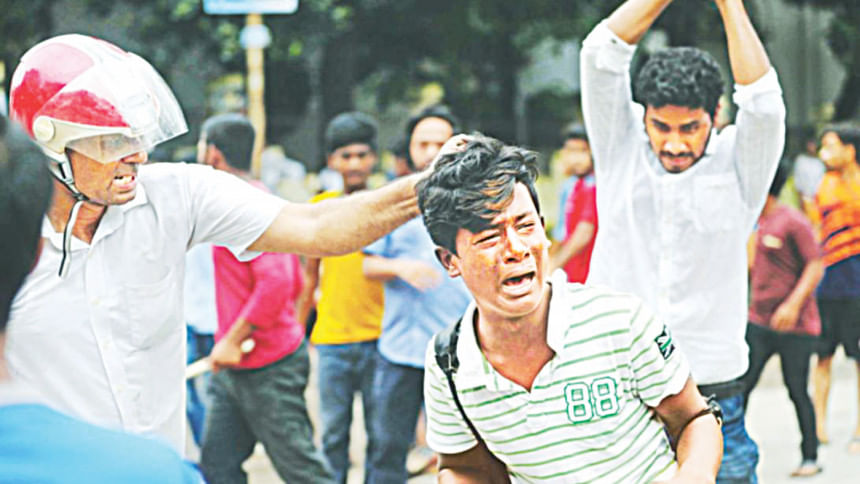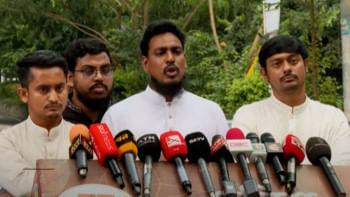Human rights violations against student protesters

Civil society groups Front Line Defenders, CIVICUS and South Asians for Human Rights (SAHR) have jointly published a report highlighting the use of excessive force, arbitrary arrests and allegations of torture and ill-treatment by the Bangladesh security forces during student protests. The report also sheds light on attacks by non-state actors perpetrated with impunity against the students.
The report titled 'Crushing Student Protests' has come out on 10 June 2020. It discusses the government's response to two major student protests (quota reform and road safety movements) in 2018. The report states that both movements were faced with excessive use of force by law enforcement agencies. It also states that unidentified armed individuals – associated with the ruling party – attacked protesters with wooden logs, sticks, iron rods, and sharp weapons. Multiple cases were filed by the police against protesters, journalists were assaulted and detained; many student activists, their friends and family members continued to face surveillance, intimidation and harassment. The report states that these patterns portray how repression is continued for a longer period of time and effectively silences future dissent.
One such arrested journalist was Shahidul Alam, a well-known photojournalist and activist. Mr. Alam was arrested by plainclothes policemen on 5 August 2018, a few hours after giving an interview to Al Jazeera English on the student protests. The next day, he was charged under the Information and Communication Technology (ICT) Act for making "false" and "provocative" statements.
The report observes that the crackdown on protests is indicative of a broader pattern of aggression and attacks by the Government against critics to silence dissent. The ICT Act (previously) and (now) the Digital Security Act, have been used to charge and convict human rights activists, journalists and government critics for speaking up. Incidents of forced disappearance are also found.
Based on the study, the report opines that human rights defenders in Bangladesh have been subjected to 'unprecedented attacks' over the last ten years. Some of the human rights defenders have even left the country for safety after being targeted by extremist groups or even the State. They have not received proper support from the police and authorities. Others have been publicly smeared or have faced false accusations.
These violations are inconsistent with Bangladesh's Constitution and its international human rights obligations under the ICCPR and Convention against Torture, and other international laws and standards.
Compiled by Law Desk (Source: frontlinedefenders.org).

 For all latest news, follow The Daily Star's Google News channel.
For all latest news, follow The Daily Star's Google News channel. 



Comments